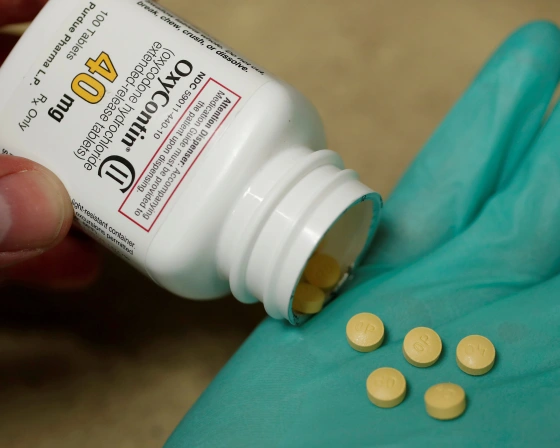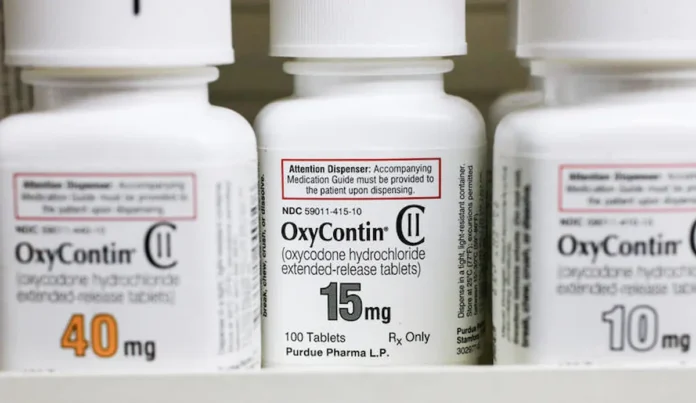The Supreme Court threw down Purdue Pharma’s mammoth bankruptcy restructuring on Thursday, ruling that the deal contained legal safeguards for the Sackler family that were improper, jeopardizing billions of dollars already obtained for victims.
The court concluded on nonideological lines, 5-4, that the bankruptcy court lacked the jurisdiction to free the Sackler family members from legal claims brought by opioid victims.
Following the verdict, the Sackler family, Purdue Pharma, and plaintiffs’ counsel expressed confidence that a new agreement could be achieved shortly.
As part of the initial deal, the company’s controlling family agreed to pay $6 billion to address opioid-related claims, but only in exchange for a total release from all future liabilities.
SCOTUS rejects Purdue Pharma settlement

Conservative Justice Neil Gorsuch, writing for the majority, said that the Sacklers might have filed bankruptcy but instead attempted to piggyback on the company’s own bankruptcy processes to address outstanding legal claims.
“They obtained all this without securing the consent of those affected or placing anything approaching their total assets on the table for their creditors,” Mr. Gorsuch concluded.
“Nothing in present law authorizes the Sackler discharge,” he said.
Gorsuch was joined in the majority by three conservative colleagues and one liberal, Justice Ketanji Brown Jackson.
Conservative Justice Brett Kavanaugh dissented, emphasizing the decision’s effect on those who stand to gain from the settlement.
“Today’s decision is wrong on the law and devastating to the more than 100,000 opioid victims and their families,” the senator stated.
Because of the court’s decision, “opioid victims are now deprived of the substantial monetary recovery that they long fought for and finally secured after years of litigation,” the attorney general said.
Kavanaugh’s dissent was supported by fellow conservative Chief Justice John Roberts, as well as liberal Justices Elena Kagan and Sonia Sotomayor.
The verdict implies that settlement discussions with the Sacklers will have to restart, while the separate Purdue Pharma bankruptcy processes continue.
Purdue Pharma hailed the verdict as “heartbreaking” owing to its effect on victims, but committed to continue attempts to reach a fresh settlement.
“The decision does nothing to deter us from the twin goals of using settlement dollars for opioid abatement and turning the company into an engine for good,” according to a statement.
Members of the Sackler family released a statement saying they “remain hopeful about reaching a resolution that provides substantial resources to help combat a complex public health crisis.”
“While we are confident that we would prevail in any future litigation given the profound misrepresentations about our families and the opioid crisis, we continue to believe that a swift negotiated agreement to provide billions of dollars for people and communities in need is the best way forward,” the spokespersons said.
Jayne Conroy, a lawyer representing some of the victims, said that if no new agreement is reached, the many cases against the Sacklers that were placed on pause as a consequence of the settlement would restart.
The Sacklers would be put under “a lot of pressure” to negotiate a rapid settlement or face “a massive onslaught to secure assets that may be hidden around the world,” she said.
The case attracted attention to the long-term ramifications of the opioid epidemic, as well as the role that Sackler-owned Purdue played in its creation.
As part of the planned arrangement, which the Supreme Court put on hold when it took up the case last year, the Sackler family promised to pay about $6 billion to resolve opioid-related claims, but only in exchange for a total release from future responsibility.
The deal, which includes Purdue assets, would be much more valuable, with the reformed business committing to addressing the consequences of opioid misuse.
Since 2019, no Sacklers have had any affiliation with the firm.
Purdue profited billions with OxyContin, a widely accessible pharmaceutical that drove the opioid crisis. As hundreds of people died from opioid overdoses, the company’s aggressive marketing techniques drew further criticism.
As the company’s profits plummeted, it sought bankruptcy protection, but the Sackler family did not. Instead, they reached a separate agreement with Purdue and plaintiffs in outstanding litigation, allowing the business to reinvent itself in response to the opioid epidemic.
Last year, the New York-based 2nd Circuit U.S. Court of Appeals authorized the proposal over the objections of William Harrington, the U.S. government trustee overseeing the bankruptcy proceedings. The Justice Department’s trustee program is designed to ensure that the bankruptcy system functions as required by law.
Harrington opposed to the publication of more claims against the Sacklers, arguing that it would be unjust to any future litigants.
Purdue questioned Harrington’s position, claiming that organizations representing thousands of claimants would not have signed on to the deal without the Sackler family’s assistance.
At the Supreme Court, different plaintiffs’ organizations supported Purdue, including one representing 1,300 towns, counties, and other municipalities and another representing 60,000 persons harmed by the opioid crisis.
Canadian municipalities and Indigenous First Nations were among those who opposed the settlement.
Purdue thrived under brothers Mortimer and Raymond Sackler, who died in 2010 and 2017, respectively. The family made billions and spent lavishly, especially on flashy humanitarian ventures.
The family notified the Supreme Court that they continue to support the deal.
In a brief submitted on behalf of Mortimer Sackler’s relatives, the majority of whom live abroad, attorneys warned of “significant litigation costs and risks” in attempting to execute any foreign court judgments against the family if the settlement was overturned.
